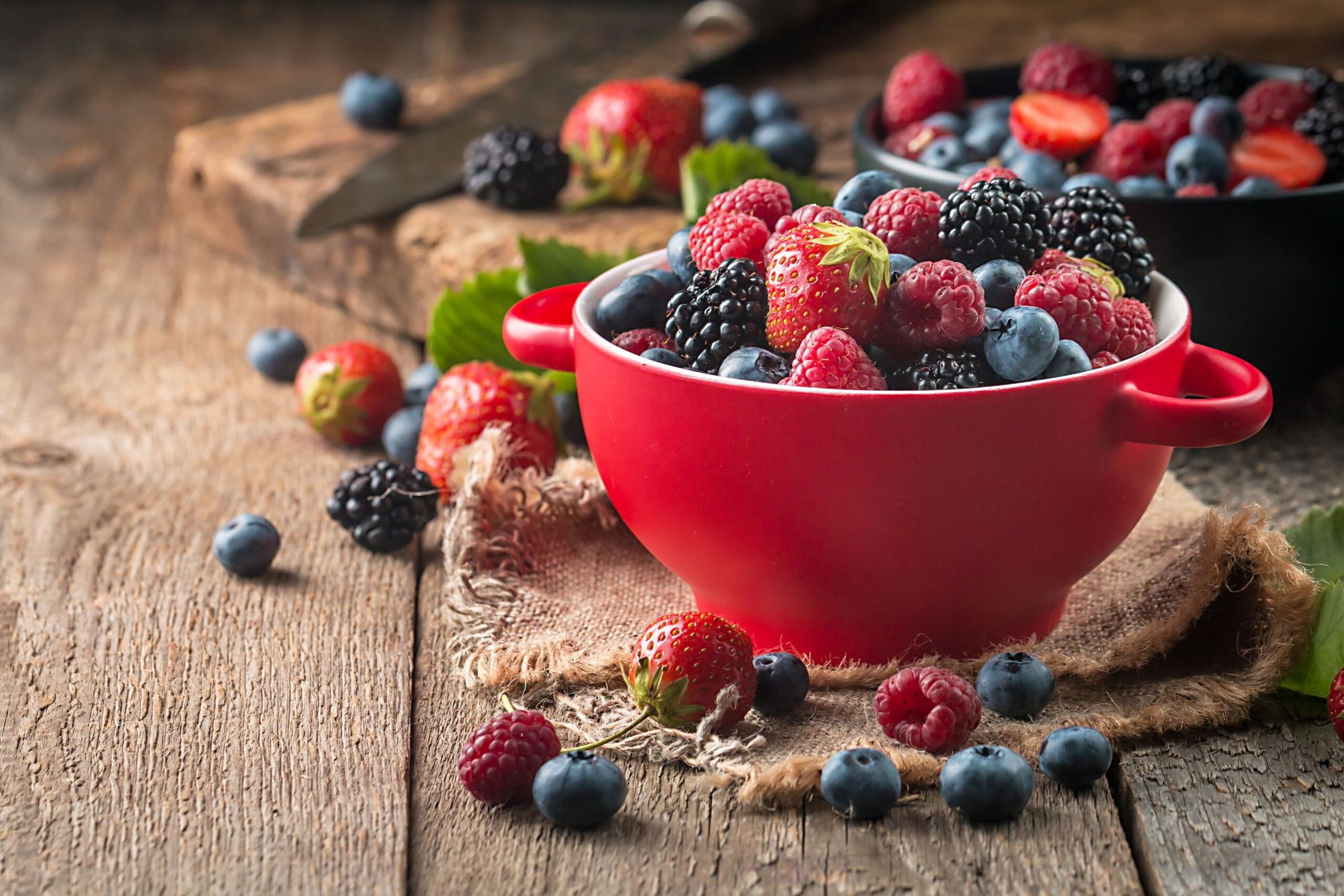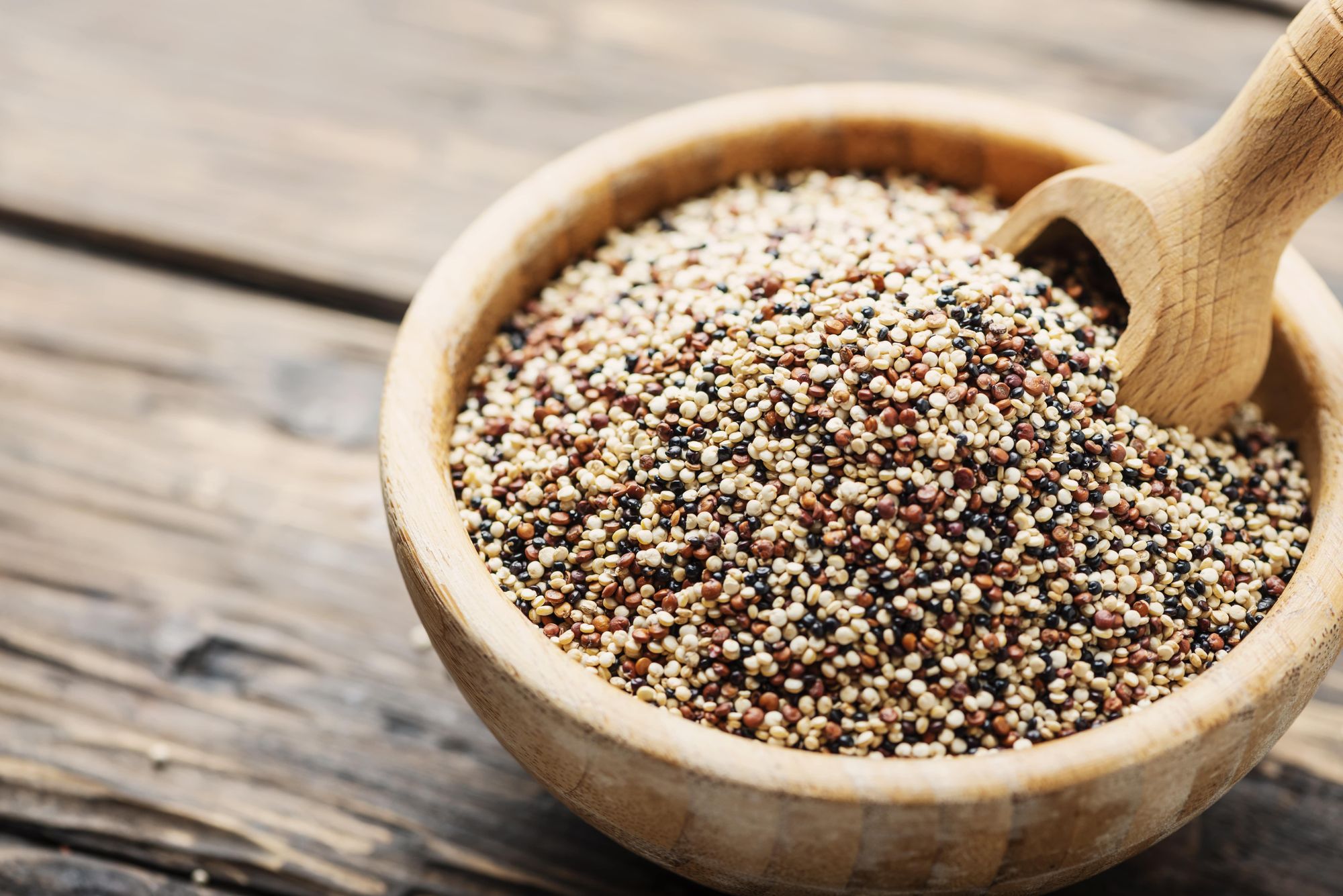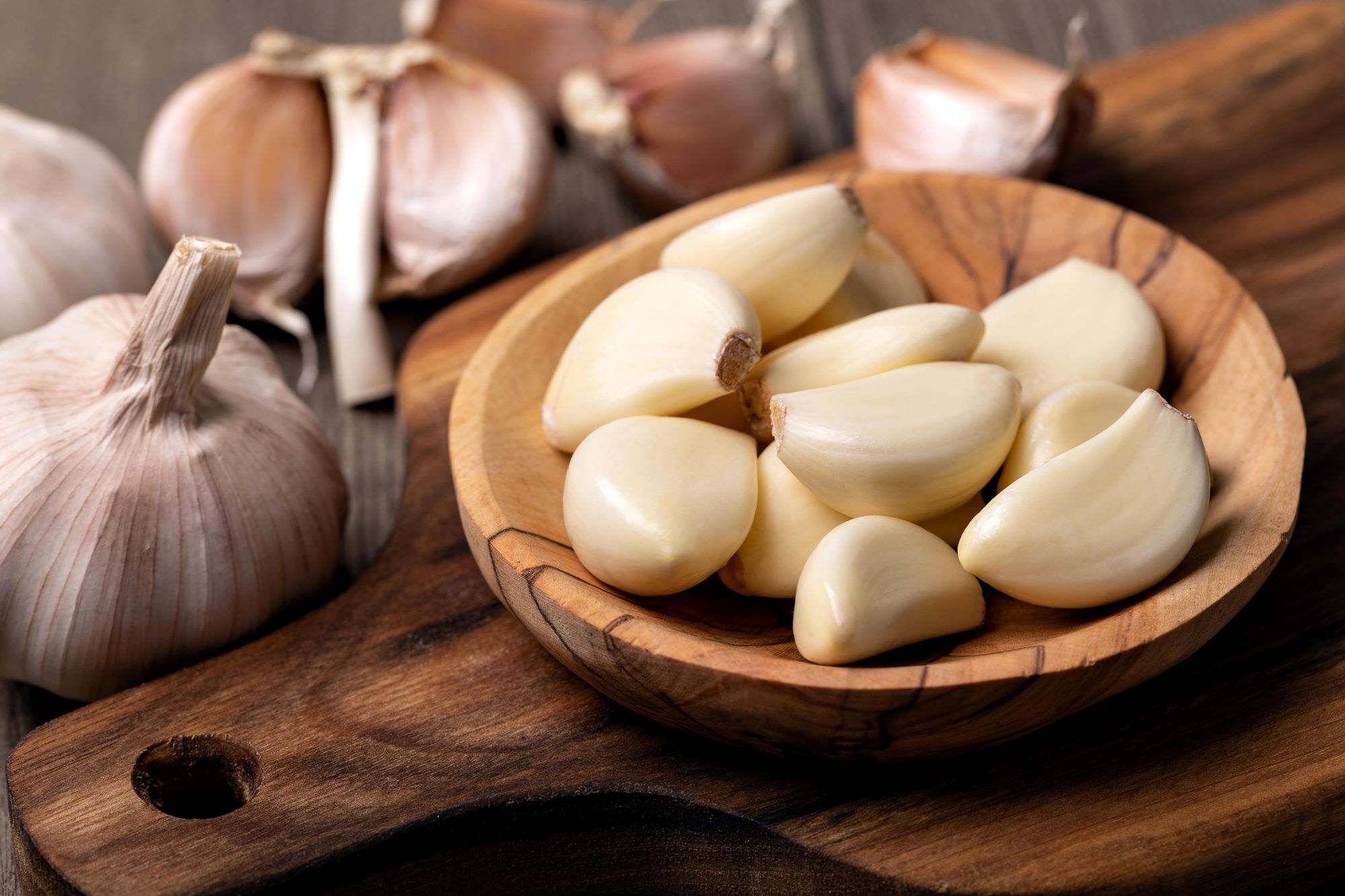
| Table of Contents 1. How To Add More Nutrient Dense Foods to Your Diet 2. Sweet Potatoes 3. Legumes 4. Quinoa 5. Berries 6. Dark, Leafy Greens 7. Liver 8. Garlic 9. Seaweed 10. The Bottom Line |
Nutrient dense foods are healthy foods that contain a high amount of vitamins and minerals in relation to their mass. If you’re trying to lose weight, feel healthier, or just eat more healthily, adding nutrient dense foods to your meal plan can help you both look and feel better. You’ll feel mentally and physically healthier if you eat more nutrient dense foods.
The nutrients found within nutrient dense foods are essential for your body. Your body uses calories from food as fuel, and also uses nutrients to support important functions like cell growth and cell repair. Eating foods that are nutrient poor can lead to rapid aging, low energy, stress, depression, fatigue, brain fog, and can also contribute to some illness and other health problems like heart disease, tooth decay and high blood pressure.
Furthermore, the nutrients and vitamins within some nutrient dense foods help your body better absorb the nutrients from other nutrient dense foods. For example, vitamin C helps your body absorb iron.
How To Add More Nutrient Dense Foods to Your Diet
It’s relatively easy to add more nutrient dense foods to your meal plan, as long as you know which foods are nutrient dense. Below, we’ve rounded up a list of some of the best nutrient dense foods on the planet.
Below are 8 nutrient dense foods you should be adding to your weekly meal prep.
1. Sweet Potatoes
Sweet potatoes are amongst the most nutrient dense foods out there. Unlike white potatoes, which are full of starch and can cause blood sugar spikes, sweet potatoes contain healthy complex carbohydrates. These ‘good’ carbs are broken down more slowly, so the energy you get from eating sweet potatoes lasts much longer than that from most simple carbs.
Additionally, sweet potatoes are full of vitamins including vitamin A, C and B6, which is helpful in producing the neurotransmitters dopamine and serotonin (brain chemicals associated with feelings of happiness), and beta-carotene, an antioxidant that prevents molecules from oxidizing. Oxidation is damaging to our DNA and is essentially how cancer grows.
Sweet potatoes are versatile and can be roasted, air-fried, boiled and mashed, sliced into sweet potato fries, and so much more.
2. Legumes
Legumes, or pulses, are a broad food group that include beans, peas, lentils, and peanuts. They are high in protein, although they do not contain all 9 of the essential amino acids that humans can’t produce on their own and need to get from food sources.
However, legumes are high in dietary fiber, which keeps your digestive tract operating efficiently and can help lower LDL cholesterol. In addition, legumes have a low glycemic index. Foods with low glycemic indexes don’t cause massive blood sugar spikes when consumed, making them a good option for people trying to control diabetes.
Finally, legumes are nutrient dense and contain a wide range of B vitamins as well as minerals, including iron, calcium and magnesium. However, due to the presence of phytates, which inhibit the body’s ability to absorb nutrients, legumes should be soaked before cooking.

3. Quinoa
Quinoa is one of the few plant-based sources of complete protein, meaning that they have all 9 amino acids that the human body cannot make on its own, making it a great nutrient dense food option for vegans and vegetarians, especially. Quinoa is also high in fiber and is a source of complex carbohydrates.
Quinoa contains vitamin B-6, which helps control blood sugar; B-12, which forms red blood cells as well as DNA; and B-9, or folate, an essential vitamin for a healthy pregnancy. It also contains phosphorus. Phosphorus is a mineral that is crucial for the production of DNA and RNA.
4. Berries
Berries are low in carbs and high in fiber, making them an acceptable fruit choice for low-carb diets such as the Keto diet. Berries are extremely high in polyphenols. Polyphenols work in tandem with other antioxidants to protect your body’s tissues against oxidative stress, which has positive correlations with certain cancers.
Specifically, berries get their deep red, purple and blue hues from a polyphenol called anthocyanin. Anthocyanin has several health benefits, including helping manage blood sugar levels for diabetics and reducing inflammation.
Berries are abundant in vitamins C and K and manganese, which helps in the formation of connective tissues such as bone and cartilage.
5. Dark, Leafy Greens
Leafy greens like kale, spinach, Swiss chard and collards all contain high amounts of vitamins and minerals. Vitamins A, C, E, and K, which can be found in salad greens, are powerful antioxidants, and vitamin E helps your body use vitamin K to repair muscles, and some studies suggest that some forms of vitamin K can aid in muscle performance.
Many dark, leafy greens also contain high amounts of vitamin B-6, as well as potassium, calcium, magnesium, copper and manganese. In addition to all the nutrients packed into leafy greens, they are very low in calories and can be seamlessly implemented into your diet plan.
6. Liver
Organ meats have far more nutrients than muscle meat, and liver is by far the most nutritious organ meat of all.
Beef liver contains an abundance of B vitamins, including B-12, B-6, niacin, folate, B-2 and, notably, B-5. B-5 helps in the breakdown of fats and carbs and can also be found in whole grains, but milling can remove up to 75% of nutrients. A 100 gram piece of beef liver, on the other hand, has more than 50% of the daily recommended value of vitamin B-5.
In addition, the liver has high amounts of vitamin A, copper, iron, phosphorus, zinc and selenium and is an excellent source of complete protein. Even though cooking liver can be tricky, adding it to your meal plan once a week can benefit your health in a number of ways.

7. Garlic
Garlic not only makes your dishes taste great, it is also a very nutrient dense food. Garlic is high in vitamin C, B-1, B-6, calcium, potassium, copper, manganese and selenium. Selenium may be helpful in improving cognition, fertility and immune system function.
Garlic may also have some cancer fighting properties, and the sulfur compound allicin in garlic might help lower LDL cholesterol while raising HDL cholesterol. Allicin may also help lower blood pressure.
Where garlic really shines is in its ability to defend your body against many different bacteria, viruses and fungi. Luckily, it’s also very easy to grow your own garlic.
8. Seaweed
Nutrient dense seaweed is one of the more underrated nutrient dense foods. The health properties of seaweed, especially kelp, are a good reason to try and incorporate more of it into your meal planning.
Seaweed is especially higher in minerals like calcium, iron, magnesium and manganese than land vegetables are. It’s also full of powerful antioxidants like phycocyanins and carotenoids.
However, what sets seaweed apart in terms of nutrient density is its high amounts of iodine.
Iodine is used by your body to make thyroid hormones like thyroxine and triiodothyronine. These hormones help regulate your metabolism, and a thyroid deficiency, known as hypothyroidism, can slow down your metabolism and cause an unhealthy weight gain.
You can find out if you have genetically higher needs of Iodine through a CircleDNA test.
The Bottom Line
Adding nutrient dense foods to your meal plan is not hard to do, and the health benefits are well worth the effort. Some people require more of a certain type of nutrient depending on a variety of factors, including their genetic makeup. Learning more about your DNA can help you and your doctor determine what kinds of nutrients you should be adding more of to your diet, and a DNA test from CircleDNA can provide you with enough information to point you in the right direction. The DNA test results will also reveal information about the optimal diet for you, based on your genetics.
References
- Genes, DNA and cancer (Cancer Research UK) https://www.cancerresearchuk.org/about-cancer/what-is-cancer/genes-dna-and-cancer#:~:text=Genes%20that%20repair%20other%20damaged%20genes%20(DNA%20repair%20genes),-The%20DNA%20in&text=But%20if%20the%20DNA%20damage,allow%20a%20cancer%20to%20form.
- Are Anti-Nutrients Harmful? (Harvard T.H. Chan School of Public Health) https://www.hsph.harvard.edu/nutritionsource/anti-nutrients/
- Correlation between Oxidative Stress, Nutrition, and Cancer Initiation (Subbroto Kumar Saha, Soo Bin Lee, Jihye Won, Hye Yeon Choi, Kyeongseok Kim et. al) https://www.ncbi.nlm.nih.gov/pmc/articles/PMC5536032/#:~:text=Specifically%2C%20oxidative%20stress%20is%20prominently,21%2C22%2C23%5D.
- Multiple Modes of Vitamin K Actions in Aging-Related Musculoskeletal Disorders (Kotaro Azuma & Satoshi Inoue) https://www.ncbi.nlm.nih.gov/pmc/articles/PMC6600274/
- Selenium: What it does and how much you need (Megan Ware, RDN, L.D) https://www.medicalnewstoday.com/articles/287842
- Grow Your Own Garlic (Ruth Lively) https://www.finegardening.com/project-guides/fruits-and-vegetables/grow-your-own-garlic#:~:text=Garlic%20isn’t%20hard%20to,harvesting%20at%20the%20right%20time.







This Post Has 2 Comments
Comments are closed.